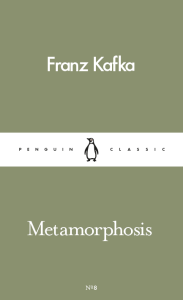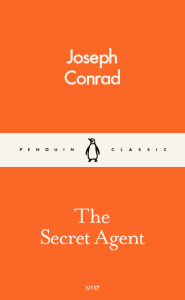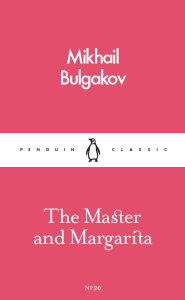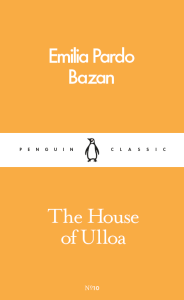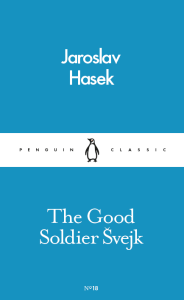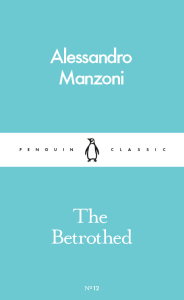An interview with Xan Brooks ( 5 June 2017)
(I interviewed film journalist Xan Brooks on his debut novel The Clocks in This House All Tell Different Times for Bookwitty. It was published on 5 June 2017. Here is the text. )
Xan Brooks began his career as part of the founding editorial team at the Big Issue magazine, which is one of the UK’s leading social investment businesses. He then worked at the Guardian newspaper, first as a film editor and later as associate editor, before going freelance in 2015. He published his first novel in 2017, The Clocks in This House All Tell Different Times. He kindly answered questions for Bookwitty:
Your novel focuses sharply on the darker side of society in the 1920s. It’s so sinister and the plot line is devastating. How did this story come about?
In October 2014, my father recounted a conversation he’d had with his aunt, shortly before her death. She told him that, as a girl, she’d been transported to Epping Forest, outside London, to see (in her words) “the funny men from the war”. My father had the impression that she had never told this to anyone before and she seemed so traumatised by saying it that he didn’t feel he could press her on the details. The novel came out of that conversation. It was an attempt to understand what might have happened to her and why. I would stress that the whole thing is made-up. It’s fiction. It is emphatically not the story of my great-aunt (who I only met three or four times in my life). That said, this made-up story has a kernel of truth.
To create historical fiction did you have to research the period or not? For example the fabled Eye of Thoth Amon, Amulet in the 1920s and 30s, the time of the expeditions to Egypt…
Ideally, you conduct lots of research that you then wear very lightly. I should have spent longer preparing, but I was too eager to start writing. So I only researched for about two weeks (on 1920s Britain and the effects of World War One) and then would just check details as I went along (how much did a pint of beer cost in 1923? How fast would a car typically go?). I’m not sure I’d recommend this as the best approach. There are a few historical inaccuracies in the book and these (genuinely) keep me awake at night. With regards to the Eye of Thoth Amon – yes, the news at the time would have been full of Howard Carter and Tutankhamen. It seemed likely that a fraud like Uriah – the fake spiritualist – would have tried to capitalise on that public fascination by claiming to possess an ancient artifact of fabulous powers.
Did the research extend to getting the language and expressions accurate as far as possible or were you keen to make the story relevant to a modern reader?
That’s an interesting question. On reading back over the first draft of the book, I realised that some of the dialogue was too self-consciously antiquated, almost mytho-poetic, like a parody of how one imagines people would talk “in olden times”. On the second draft, I tried to loosen the speech, roughen its edges; make it more natural and easy – possibly more modern, although I’m not altogether convinced people spoke very differently one hundred years ago anyway. By and large, I trusted my ear. If some phrase or piece of slang sounded too modern, I’d take it out.
Commonplace names like “Uriah Smith” and “Lucy Marsh” are chilling. They lull you into an ease that is horribly shaken by the story. How did you achieve this outwardly placid tone of the story with its violent undercurrents?
I knew from the start that the tone would be crucial. The story is horrible. It’s a thing of darkness and cruelty and it also has a thick vein of operatic wildness, in that it contains masked monsters and flaky magicians and debauched house parties and fiery airplanes. The danger with such ingredients is that the tale risks overheating, becomes hysterical and ludicrous. I had a faint terror of the book turning out like a bad Andrew Lloyd Webber musical, with lots of wafting dry ice and plastic foliage, masked dancers and anguished show-tunes. The best way to counter this threat was to downplay everything and observe the events very matter-of-factly, without fuss. Lucy’s perspective was crucial in this regard. She sees and questions but does not rush to judgment – partly because she is still establishing a moral framework to measure all these crimes against.
The Yellow Brick Road is meant to lead to something happy and comforting instead it is dark and twisted in your novel. Why develop a story dwelling on the nightmarish aspect to a beloved children’s tale The Wizard of Oz?
The yellow-brick road leads to The Wizard of Oz but, while not actively evil, the Wizard is a lie, an arrangement of smoke-and-mirrors, so there are some immediate parallels there. Plus I like the idea of false sanctuaries in fiction; the safe haven that isn’t. If the first half of the book is about the abuse and exploitation of childhood innocence, the second is about the gaining of wisdom, a coming to terms with an adult world that sustains and replenishes itself by exploiting the weak and the innocent. In a more traditional fairytale, the girl would survive the ordeals of terrifying forest to find a happy ending at the big house with the handsome prince. I liked the notion that the people in the big house are—at least tangentially—responsible for what has occurred in the forest. Instead of finding safety, Lucy finds herself behind the scenes at the sausage factory.
Trying to read this book, as a straightforward novel does not necessarily work although the opening pages are written in a classical manner. It’s only when one orients the mind to read the text as if it were a film camera in motion, focusing upon some details and panning out in others, that it becomes easier to engage with the story. Do you think being a film journalist has inadvertently affected your literary style of writing?
No doubt about it—but I think I’m only now realising the extent to which it has. I’ve never written a feature-length screenplay and have no desire to. That said, the story primarily came to me as a series of images and bursts of dialogue. I’m aware that I’ve framed it using what might be termed as the traditional tools of film grammar, with the occasional flashback and plenty of cutting between parallel story lines, especially during the opening half. I would stress that I didn’t want to write a sort of flat prose-blueprint for a movie. I wanted to write a novel filled with beautiful writing, interior monologues and shadowy mysteries. But I do recognise that the writing is very visual—and that this reveals my journalist background and my love of cinema. I basically saw and heard the book as I was writing it.
“Terrible things happen all the time and there is nothing to do but hope that whatever comes next will be brighter and better.” Is this what you hope to illustrate with your novel?
Well, that’s specifically Lucy’s feeling at a specific point of the book, when she is arguably at her lowest ebb. I think it’s a decent ethos so far as it goes, but it risks being a little passive—hoping for something better as opposed to actively taking steps to make it so. My opinion is that Lucy eventually does take those steps—although perhaps not entirely consciously—and that her situation improves as a result. But yes, terrible things happen all the time, there’s no arguing with that. Cruelty, abuse and hypocrisy are the constants in any era.
The use of masks by the “Happy Men” illustrates the historical fact of prosthetics being made for injured soldiers from tin and copper. Why did you decide to weave in this little-known aspect of the Great War into your story instead of just having a group of ordinary men?
Again, it goes back to my great-aunt’s account of what happened to her as a child. But it also nicely muddies the moral waters of the story. Yes, the children are the obvious victims. But then (without ever excusing their actions) you realise that the abusers are themselves victims. That they have been made into monsters, that they are cogs in the wheel of a wider, industrialised pattern of abuse. Hopefully the masks serve to make the abusers more frightening – and then more tragic too.
It’s set at the time immediately after the Victorian era and the beginning of the 20th century when there is a perceptible shift in how children are treated. Reading The Clocks in This House All Tell Different Times today with the dreadfulness of the sexual abuse of children during the Great War is very disturbing. It is captured dramatically in the conversation between Lucy Marsh and her grandfather. Was this section difficult to write?
Yes, very. I felt it was important that Lucy confronts her grandfather directly about what he is doing. Except that then—in the way characters sometimes have of surprising you with their responses—it suddenly seemed equally important that he didn’t break down and plead for forgiveness. If anything, his primary emotion is irritation at being challenged by a child. Now, partly that’s a self-defense mechanism, him not wanting to admit any guilt. But it also says something about an admittedly fairly ill-educated, un-principled man of that era and class. One, children were often viewed as just a rung or two above livestock on the social scale. Two, evidence suggests that the war had this incredible desensitising effect on the people of Britain (and Germany, France etc.). So although he’s ashamed of his actions, he’s able to brush them aside, or explain them away. Would it have even been described as sexual abuse in those days? I suppose it would—assuming anybody bothered to investigate the crime and deliver a verdict. But would it have even reached that stage? Growing up in the 1980s, I vividly recall the way that sex abusers were typically referred to in jokey, derogatory terms, as though they were pathetic little clowns—with the implication being that the actual abuse was somehow pathetic and clownish, too; some dirty embarrassment that it was best to ignore. If that was how sexual abuse was presented in the 80s, I imagine it was even more easily dismissed in the 1920s. So long as the children came back alive at the end of each day, it was possible to avoid asking too many awkward questions.
Why did you make the leap from film journalism to novel writing?
Partly it was circumstantial. My job (which I loved) was being dismantled and I figured I’d better get out quick, before the situation got any worse. Thinking back on it now, this book came out of a very strange and stressful period. In the space of six months, we had a baby, my wife fell ill, my father suffered a stroke and my job came under threat. Also, we had no money. And so at some point you just find yourself living in a perpetual state of fear and uncertainty; it becomes the water that you’re swimming in. So you think, “Forget trying to do the right thing, the sensible thing. Forget trying to play the percentages, because that clearly hasn’t worked out”. Writing a novel, then, could be seen as the equivalent of doubling down, of embracing the fear, of diving even deeper. And yes, that’s partly what it was. But it was also something I’d always wanted to try. I’ve always read voraciously and I love writing too. I loved writing features, news stories and reviews and am still able to earn money doing so. But writing a novel is a richer, more frightening, more exhilarating adventure. It was a wonderful experience. Everyone should try it.
How did you select the intriguing title: The Clocks in This House All Tell Different Times?
Actually, it was something my wife said. We were sitting in the living room, midway through writing the book, and she made this throwaway remark, which stuck in my head. I used it as the opening line of the chapter I was writing—but then we started thinking of it as a good, resonant working title for the whole book. I didn’t think it would survive because it’s too long and strange; I thought we’d certainly end up calling the book something else. But my publisher (Salt) either came around to the idea, or generously decided to give me the benefit of the doubt. Now, of course, I can’t imagine it being called anything else.
Who are the storytellers (in any form) who have influenced you?
I’m going to stick with novelists otherwise I’ll still be coming up with names in November. Off the top of my head and in no particular order: EL Doctorow, Flannery O’Connor, Robert Stone, Vladimir Nabokov, Philip Roth, Joseph Roth, John Steinbeck, Richmal Crompton, Stephen King, Nathanael West, Willa Cather, Denis Johnson, Bernard Malamud.

